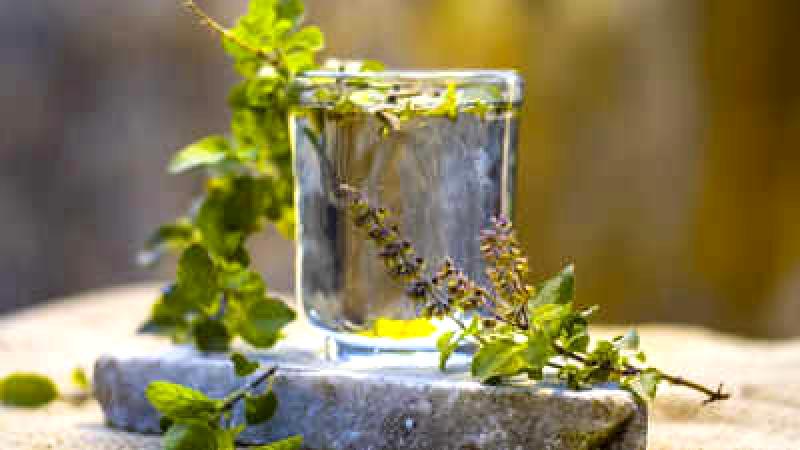
Tulsi, also known as Holy Basil, has been known for its medicinal properties for millennia. It is associated with Lord Vishnu and is mentioned in ancient scriptures, highlighting its religious and medicinal importance across centuries. Tulsi, a member of the Lamiaceae family, is widely used in Ayurvedic medicine to address respiratory issues, viral infections, and more. Every part of the Tulsi plant, scientifically named Ocimum sanctum Linn, is utilized in traditional medicine, including its leaves, stem, flower, root, and seeds.
Tulsi is trusted for a multitude of health benefits, such as boosting immunity, reducing stress, aiding digestion, detoxifying the liver and kidneys, promoting respiratory health, and regulating blood sugar levels. It can be consumed in various ways, such as chewing the leaves for quick relief from coughs and colds, making a fragrant tea by infusing the leaves or seeds in boiling water, or soaking Tulsi in warm water for daily consumption on an empty stomach. Additionally, Holy Basil leaves can be used to enhance the flavor of salads, cheese, meat, pesto, and egg dishes.
Benefits of Tulsi Water:
- Cold, Cough, and Sore Throat: Tulsi is especially valuable during the rainy season, as boiling its leaves in tea or water can help reduce fever associated with illnesses like dengue, malaria, and seasonal flu. Mixing Tulsi leaves with honey can serve as an Ayurvedic remedy for coughs by aiding in mucus release from respiratory issues. Gargling with Tulsi water can also relieve sore throats.
- Kidney Health: Tulsi's healing properties can be beneficial for individuals with kidney stones. Those with renal stones are recommended to consume Tulsi leaf juice with honey. According to Ayurveda, this combination can provide benefits for kidney health.Assisting in Stone Passage: Tulsi can aid in the removal of kidney stones over a six-month period by facilitating their passage through the urinary tract.
Managing Blood Sugar Levels: Studies indicate that consuming two to three tulsi leaves or a tablespoon of tulsi juice on an empty stomach can reduce fasting glucose levels and help prevent blood sugar spikes in individuals with diabetes.
Treating Skin Infections: Tulsi's anti-bacterial, anti-inflammatory, and anti-viral properties make it effective in treating skin infections, including fungal infections and various skin disorders. It can also aid in the treatment of leukoderma.
Alleviating Stress: As an adaptogen, tulsi can help manage mood swings, promote calmness, and enhance mental clarity by boosting the body's ability to cope with stress.
Promoting Heart Health: With its rich antioxidant content, including vitamin C and eugenol, tulsi protects the heart from free radical damage and supports overall heart health.
Lowering Blood Pressure: Holy basil is known in Ayurveda for its blood pressure-lowering properties due to its potassium and vitamin A and C content. To see effective results, it is recommended to consume holy basil on an empty stomach daily for four to six weeks.











